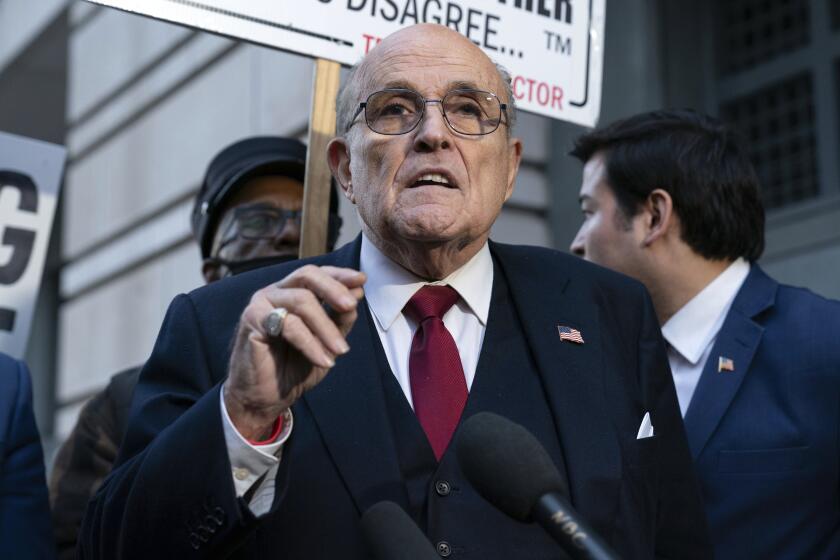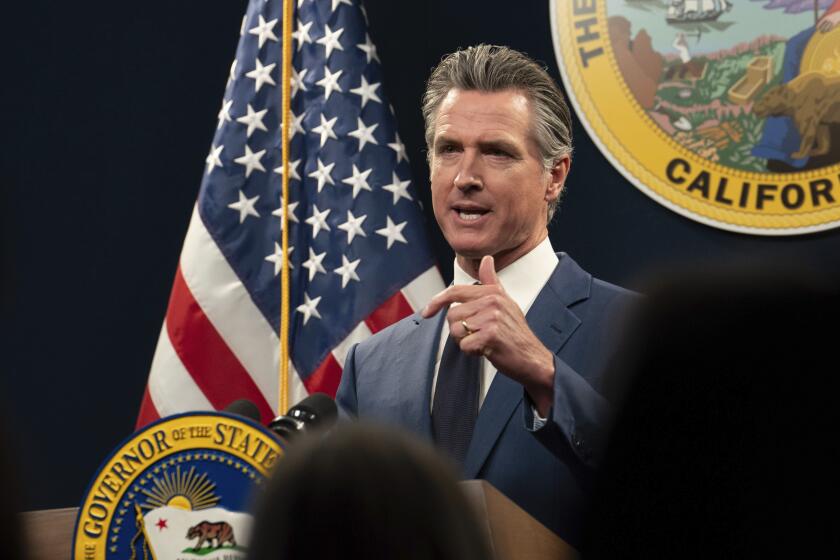Debate Begins on Crazy Quilt of Health Insurance Laws
Should all Americans who have health insurance, regardless of where they live or work, enjoy the same government-guaranteed consumer protections?
This seemingly simple question lies at the heart of the debate that began in the Senate on Monday over a “patients’ bill of rights” for enrollees in managed health care plans.
Most Republicans say that the government should not be in the business of guaranteeing everyone the same rights: that other factors, such as where people have chosen to live, should also play a role. “We didn’t think it would be wise to override and overrule the states,” said Sen. Don Nickles of Oklahoma, who ranks second in the Senate Republican leadership.
Democrats typically say all patients should be guaranteed the same protections, which should include the rights to obtain emergency room care and to appeal an adverse decision by a health plan to an independent review panel.
“No patient should be turned away at the emergency room door or denied access to the specialist they need to save their life . . . because they work for a small business instead of a large corporation, or because they are a teacher in public school instead of an executive on Wall Street,” said Sen. Edward M. Kennedy of Massachusetts.
The situation both parties are addressing is a crazy quilt of health insurance laws from state to state and from insurer to insurer. One family might have access to the emergency room closest to its home while the family next door might have to drive 40 miles. Employees of two dry cleaners on either side of the Kansas-Missouri state line might have access to very different appeals processes.
“In some cases the states have done some good things, but there are inevitably going to be states where laws protecting consumers haven’t been passed,” said Nicole Tapay, a professor of health policy at Georgetown University.
Most people have no idea which rules apply to them until they get sick and have a dispute with their health plan.
Both parties have crafted legislation to expand the rights of patients. But who would benefit from the competing bills differs profoundly.
The Senate plans to vote by week’s end on how many people should be guaranteed certain health care rights. In the House, Speaker J. Dennis Hastert (R-Ill.) has vowed to move similar legislation to the floor this summer.
Five sets of rules now govern the nation’s health plans:
* Roughly 48 million people get their insurance from employers who in effect insure themselves and assume the financial risk when their workers need expensive care. These workers are eligible only for the protections that are part of the 1974 federal Employee Retirement Income Security Act, which supersedes state insurance laws. Most notably, the 1974 law shields health plans from malpractice lawsuits.
* Another 75 million Americans are in group health insurance plans purchased by their employers from insurance companies or health maintenance organizations. These workers are covered by some federal and some state protections. But they have no right to appeal adverse health plan decisions to independent review boards or to sue their plans for negligence.
* Between 12 million and 15 million Americans are self-employed or buy their health insurance on their own. They are covered by whatever consumer protections have been enacted by their states; self-employed electricians in Connecticut enjoy an array of protections, some of which are unavailable to their counterparts in California, although the California Legislature is considering a more comprehensive set of protections.
* An additional 20 million to 23 million Americans work for state and local governments, and they may be covered by state insurance laws, depending on the state. California state and local government employees in the CALPERS plan are covered by state consumer protections, have recourse to an appeals process and can take plans to court for malpractice.
* The 9 million federal employees are guaranteed many, but not all, of the same rights that the Democrats are seeking to give all Americans in their bill.
The Democratic bill would guarantee all Americans except federal employees an array of rights including the right to an independent review of a health plan’s decision and the right to recover damages from a health plan if its decision to deny care resulted in injury or death.
The Republican bill is more complicated. The 48 million people in self-insured plans would be eligible for some of the rights now offered by a number of states: for example, guaranteed coverage of emergency room visits and direct access to an obstetrician-gynecologist for women and to a pediatrician for children.
The GOP bill would create an independent appeal process for the 48 million self-insured as well as the 75 million consumers in group health plans.
Not eligible for such appeals under the GOP bill would be the 12 million to 15 million self-employed and the 20 million or so state and local government workers--unless they had an independent appeal process under their state laws. At least 20 states have such laws.
More to Read
Get the L.A. Times Politics newsletter
Deeply reported insights into legislation, politics and policy from Sacramento, Washington and beyond. In your inbox three times per week.
You may occasionally receive promotional content from the Los Angeles Times.






